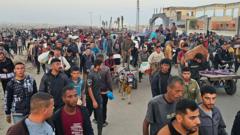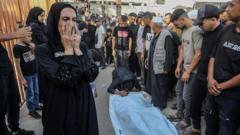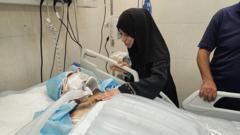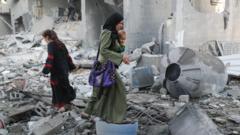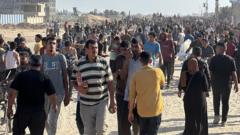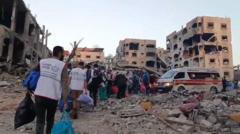The death of Muhammad Sinwar, a significant figure in Hamas' military operations, may affect group dynamics, but analysts predict little change in strategies.
Hamas Military Leader Muhammad Sinwar Reportedly Killed in Israeli Airstrikes

Hamas Military Leader Muhammad Sinwar Reportedly Killed in Israeli Airstrikes
Israeli military claims to have eliminated top Hamas leader in Gaza, raising questions on operational impact.
In a recent military announcement, Israel reported the death of Muhammad Sinwar, a leading commander of Hamas in Gaza, during targeted airstrikes aimed at a hospital area in southern Gaza. The Israeli defense forces have claimed that the airstrikes were precisely focused on Sinwar, although Hamas has yet to confirm this assertion. It's important to note that over the course of the ongoing conflict in Gaza, Hamas has typically delayed confirmation of losses among its ranks, often reporting such news weeks or months later, if at all.
Muhammad Sinwar, who reportedly holds a significant role within Hamas, is the brother of Yahya Sinwar, the previous Hamas leader who was killed by Israeli forces last year. His death could be a significant loss for the organization, especially considering that he was one of the remaining influential Hamas leaders after nearly 20 months of continuous turmoil with Israel. Despite this, analysts remain skeptical about the immediate implications of his death on Hamas’s overall military strategy or operational capacity.
Israel has previously targeted and killed several high-ranking members of Hamas without slowing down the group's insurgent activities. Recently, the Israeli military conducted airstrikes that struck an underground facility near the European Hospital, located in the vicinity of Khan Younis—where Sinwar was reportedly present at the time of the bombings. Although initial reports indicated that Israeli officials had a specific aim on Sinwar, they did not disclose his name during formal announcements related to the airstrikes, highlighting the ongoing complexities in the region's military engagement.

